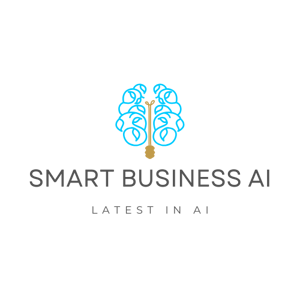THANK YOU FOR VISITING
Exploring the Latest AI Developments and Their Impact on Business Growth
Stay updated with Smart Business AI as we delve into the latest AI advancements, insightful articles, and innovative use cases. Discover how emerging applications can transform your business landscape while benefiting from our affiliate marketing strategies to enhance your online presence and revenue streams.
5/8/20243 min read


Artificial intelligence is no longer a futuristic concept reserved for big tech companies. In 2025, AI has evolved into a versatile engine for innovation, efficiency, and accelerated growth across every industry. From automating repetitive tasks to uncovering market trends and personalizing customer experiences, AI is revolutionizing how businesses operate and scale.
In this blog post, we’ll explore the latest AI developments and how they’re actively driving measurable growth for startups, SMEs, and global enterprises alike.
1. AI-Powered Automation: Doing More With Less
One of the most transformative aspects of AI is its ability to automate processes—especially repetitive, rule-based tasks. Businesses are increasingly leveraging tools like:
Robotic Process Automation (RPA): Automates administrative workflows like invoice processing, payroll, and CRM updates.
AI Chatbots: Manage customer service, appointment booking, and lead qualification 24/7.
Sales and Marketing Automation: Platforms like HubSpot and Salesforce use AI to qualify leads, forecast sales, and personalize email campaigns.
Impact: These tools save time, reduce headcount requirements, and improve consistency in service delivery—critical for scaling efficiently.
2. AI in Data-Driven Decision Making
Modern businesses generate enormous volumes of data. AI’s role is to make sense of that data at scale—often in real time. Tools like Power BI with AI integrations and Google Cloud AutoML help transform raw data into actionable insights.
Example: Retailers are using AI to predict inventory needs based on historical sales, seasonal trends, and weather data—helping avoid overstocking or stockouts.
Business value: Smarter decisions, lower operational costs, and higher customer satisfaction.
3. Personalized Customer Experiences at Scale
AI is becoming the backbone of customer engagement strategies. Machine learning algorithms help personalize interactions across platforms, improving loyalty and conversion rates.
Recommendation Engines: Used by eCommerce giants and now available to smaller businesses through tools like Recombee and Clerk.io.
AI Voice Assistants: Deliver support, product recommendations, and service updates via smart speakers and apps.
Behavioral Analytics: AI tracks and predicts customer behavior, enabling timely interventions and offers.
Outcome: Higher retention, better user engagement, and more sales per customer.
4. AI for Smarter Product Development
Whether it’s a new app, service, or feature rollout, AI is accelerating the development lifecycle.
Generative Design: AI tools assist in creating product prototypes, testing variations faster, and suggesting design improvements.
No-Code AI: Platforms like Bubble and Zapier (with AI integrations) allow even non-developers to build apps with smart logic and workflows.
Natural Language Processing (NLP): AI can turn user feedback into structured data for feature prioritization.
Business effect: Faster time-to-market, better alignment with customer needs, and reduced development costs.
5. AI and Predictive Sales Forecasting
Sales forecasting has always been a blend of data and guesswork. With AI, guesswork is being replaced by predictive accuracy. Machine learning models analyze variables like past performance, buyer behavior, competitor moves, and economic indicators.
Platforms like Zoho CRM and Pipedrive now embed predictive analytics to help businesses forecast more accurately and prioritize high-probability deals.
Result: Better resource allocation, improved cash flow planning, and strategic decision-making.
6. Real-Time AI Assistants for Entrepreneurs
Small business owners and solopreneurs now have access to tools that act like full-fledged business assistants. Tools like ChatGPT, Notion AI, and Copy.ai help with:
Writing business emails, pitches, and reports
Conducting competitor research
Drafting contracts and policies
These AI assistants dramatically reduce the time spent on administrative tasks, allowing founders to focus on core business strategy and growth.
7. AI in Business Risk Management
AI is increasingly being used to detect fraud, assess creditworthiness, and evaluate supplier risk. In 2025, it’s common for finance and compliance teams to use AI dashboards to:
Track anomalies in financial transactions
Identify suspicious login behaviors
Flag non-compliant invoices or vendors
Example: Banks and fintech startups use AI to process thousands of transactions per second and flag potential money laundering in real time.
Final Thoughts
AI is not just a tech upgrade—it’s a business multiplier. In 2025, organizations that embrace AI early are not only cutting costs, they’re gaining competitive advantages in speed, personalization, scalability, and decision-making.
Whether you run a startup, SME, or enterprise, leveraging the latest AI developments is no longer optional—it’s essential for business growth.
Want more insights like this?
Subscribe to our newsletter to stay ahead of the curve with weekly updates on AI tools, trends, and growth strategies.
Subscribe
contact@smartbusinessai.cloud
© 2025. All rights reserved.
